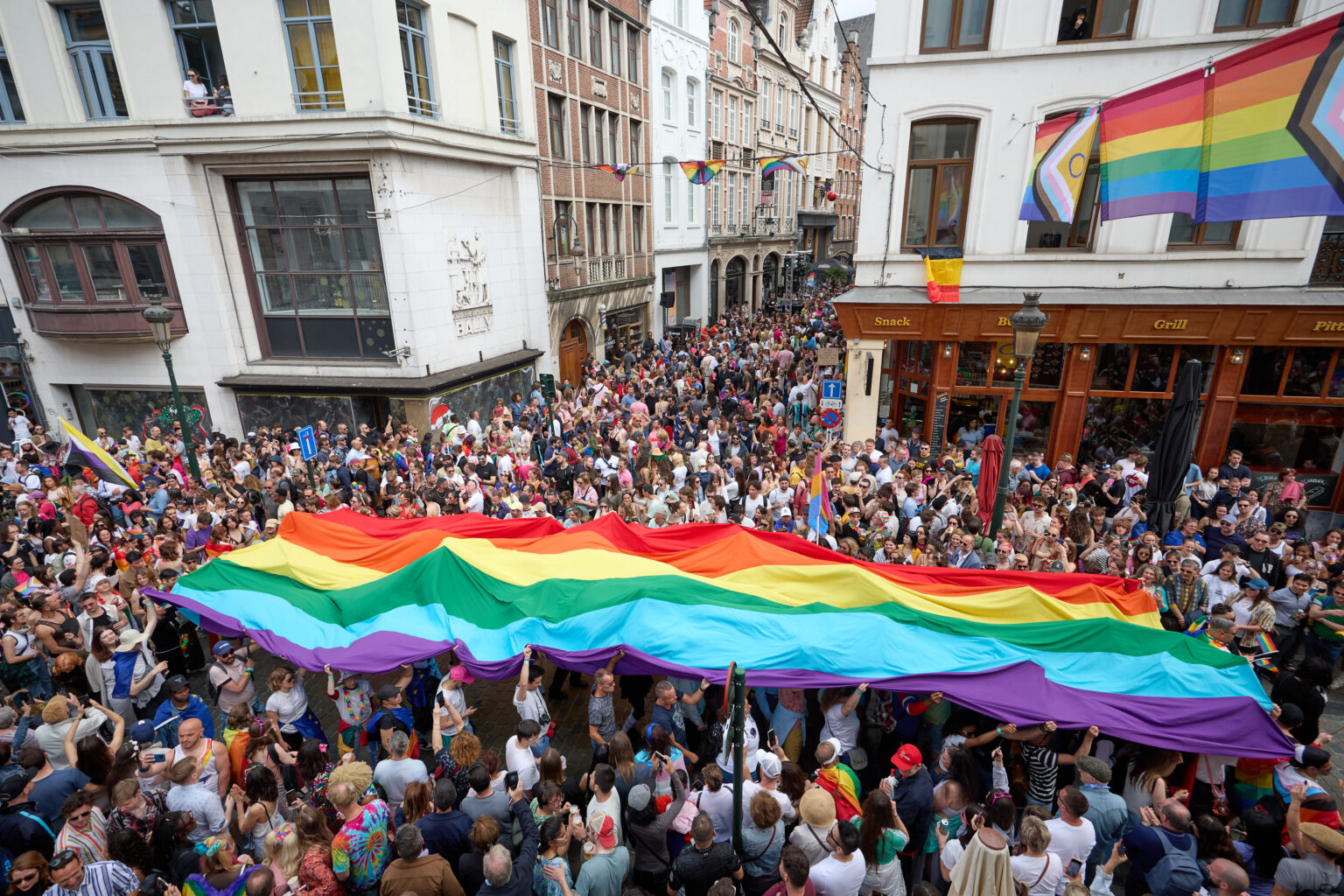Why are LGBTI activists such fierce defenders of democracy?

At the recent Democracy Alive conference in Brussels, our Executive Director, Evelyne Paradis spoke about the DNA that drives LGBTI activists in a Europe where there’s a mistaken assumption that everyone has access to democracy.
Across Europe, authoritarian leaders continue to target and scapegoat LGBTI individuals, bringing increased polarisation of public discourse and violence in the streets. LGBTI activists counteract by defending democratic values with unwavering determination. But this defence is not merely a reaction; it is part of their DNA.
During a recent panel organised by the European Movement at their Democracy Alive conference, our Executive Director, Evelyne Paradis highlighted that although we may assume that everyone has equal access to democracy, this is not the reality, and reflected on why marginalised groups need democracies and why democracies find some of their greatest champions among LGBTI activists.
Today’s blog is a snapshot of the important message Evelyne was at the conference to deliver.
“People who have remained marginalised want to have the same rights, and it is crucial to address their aspirations for equality. Marginalised groups require a system that not only permits but actively enables the protection of their basic rights. While democracy may not be flawless, marginalised communities, including LGBTI people, rely on its rules and practices; they depend on them to access their fundamental rights.
This is one of the key reasons why LGBTI activists find themselves at the forefront of defending freedom of assembly, association, expression, and media freedom. These freedoms are not only rights that LGBTI individuals, like everyone else, are entitled to, they are also essential to enabling communities and individuals to advance equality. It is thanks to these rights that LGBTI communities can organise and march in public spaces in safety, can freely inform and contribute to public discussions, and so on.
Another reason the defence of democracy matters so much for LGBTI people is that attacks on democracy are coming at a very real cost to them. The rise of authoritarian regimes across Europe comes hand-in-hand with scapegoating by populist far-right leaders of LGBTI individuals, migrants, and other vulnerable groups as part of their divisive tactics for political gain. This has concrete and dire consequences in people’s lives, as last year we witnessed the deadliest rise in anti-LGBTI violence in over a decade.
But it’s not just about pointing fingers at far-right parties and authoritarian leaders. We must look at ourselves in the mirror and accept our democracies are not perfect, also in places where things seem to be fine.
While democracy may be one of the most promising systems for ensuring basic protections, not everyone enjoys equal access to them and many are left behind. At its core, democracy is made of trust. To earn and have trust, people need to feel listened to, heard and included. At the moment, there’s a high risk of many disengaging and becoming more disillusioned by democracy simply because they do not find themselves in it.
This is why it is crucial to listen to LGBTI people and other marginalised groups when they demand equality. Firstly, democracy is about protecting everyone’s rights. By paying attention to their needs, we honour that principle. Secondly, LGBTI activists are some of the fiercest defenders of democracy. Their commitment contributes to ensuring that our democracies are alive and flourishing. By addressing their demands, we can build a more inclusive democracy while making sure that its champions remain strong.”